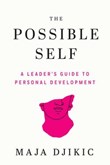- Behaviour
Self-Development for Leaders
Rotman’s Maja Djikic reveals how to discover your purpose and fulfil your whole-life potential through lasting change
While the root causes of the wider mental health crises involve multiple socioeconomic and health factors, individuals that aspire to leadership tend to struggle with specific mental concerns—feelings of disillusionment, imposter syndrome, stagnation, or burn-out—as well as stress, anxiety, lack of confidence, etc.

Whereas dealing with the global mental health crisis requires tackling broader societal inequities, the solution for those in leadership roles usually comes down to aspects of attitude and behaviour that are within their grasp to change. Albeit self-change is extremely hard to achieve. Knowing what and how to change can be illusive and the process painful. Yet, as Maja Djikic says in her new book: The Possible Self: A Leader’s Guide to Self-Development, giving up on the struggle for change “feels like abandoning the person we could become, our possible self.”

Djikic, a personality psychologist and professor at the University of Toronto’s Rotman School of Management, addresses the paradox whereby high-performing individuals, outwardly successful in their careers, can feel unfulfilled and stalled in their development as people. Rather than presenting a list of simple behaviour or mindset changes, her approach is to delve into the deep innate desires and motivations that constitute our inner selves.
Like Montaigne in his tower, many great minds have examined their selves both to better understand human nature and to make meaningful changes in their own lives. Djikic offers a modern take on these two themes. Her book can be read as a manual about what self is and how it develops, and as a guide to personal self-development. The book has a positive message for everyone, not just for the seriously downhearted. Its starting point, on the journey toward self-development, is a focus on compassionate self-acceptance, avoiding criticism of our current state—though self-acceptance does not mean finding ways to live with our frustrations. We must believe in the possibility of change.
Djikic opens with an assault on the false preconception that adult humans are set in their ways, with personality traits that are immune to transformation. Neuroplasticity research has shown how even older people are able to change. Self-development is a life-long process, which will involve overcoming setbacks and periods of stagnation, but no one is inevitably stuck or stalled. She then moves on to consider the self, which she defines as having five essential parts: Desires, Actions, Emotions, Thoughts, and Body (including accumulated past knowledge).
Using several illuminating cases, Djikic introduces a practical but sophisticated system for self-development, which she calls a Wheel of Change. Her Wheel is divided into five sections corresponding with the five key parts of ourselves. The core of the book is devoted to understanding the mechanisms of these integral parts, and how they should act and interact to ensure the Wheel rotates as efficiently as it should—desires driving actions, tempered by emotions, thoughts, and body. All five parts of ourselves moving together in the same direction.
At one level this is another self-help guide. What lifts Djikic’s book to a higher level is the depth of insight, the experience and research that supports its analysis, the quality of the writing, and the profound conclusions it reaches. It has relevance for all leaders and would-be leaders, for those responsible for developing and coaching others, and for any thoughtful adult seeking to find whole-life fulfillment—to be their possible selves.
……………………………………………………………………………………………………………
............................................................................................
Join Prof. Maja Djikic on one of her two executive programs at Rotman Executive Education:
Executive Presence | Next offering: September 12-13, 2024
Learn the tools to improve your motivation, body language, and emotional intelligence so you become and present the way you want to be seen.
Psychology of Leadership | Next offering: November 7-8, 2024
Examine psychology's role in becoming a more confident, self-aware leader, and explore science-based tools for supporting individual and organizational growth.
Rotman School of Management is Canada’s leading business school and has Canada’s largest group of management faculty. It is home to some of the most innovative research institutes in the world
ARTICLES YOU MIGHT LIKE
RESEARCH
LBS and ESMT study identifies the danger of citing information based on the ‘gist’ of the truth rather than the ‘literal’ truth
DEVELOPING LEADERS QUARTERLY MAGAZINE AND WEEKLY BRIEFING EMAILS


































